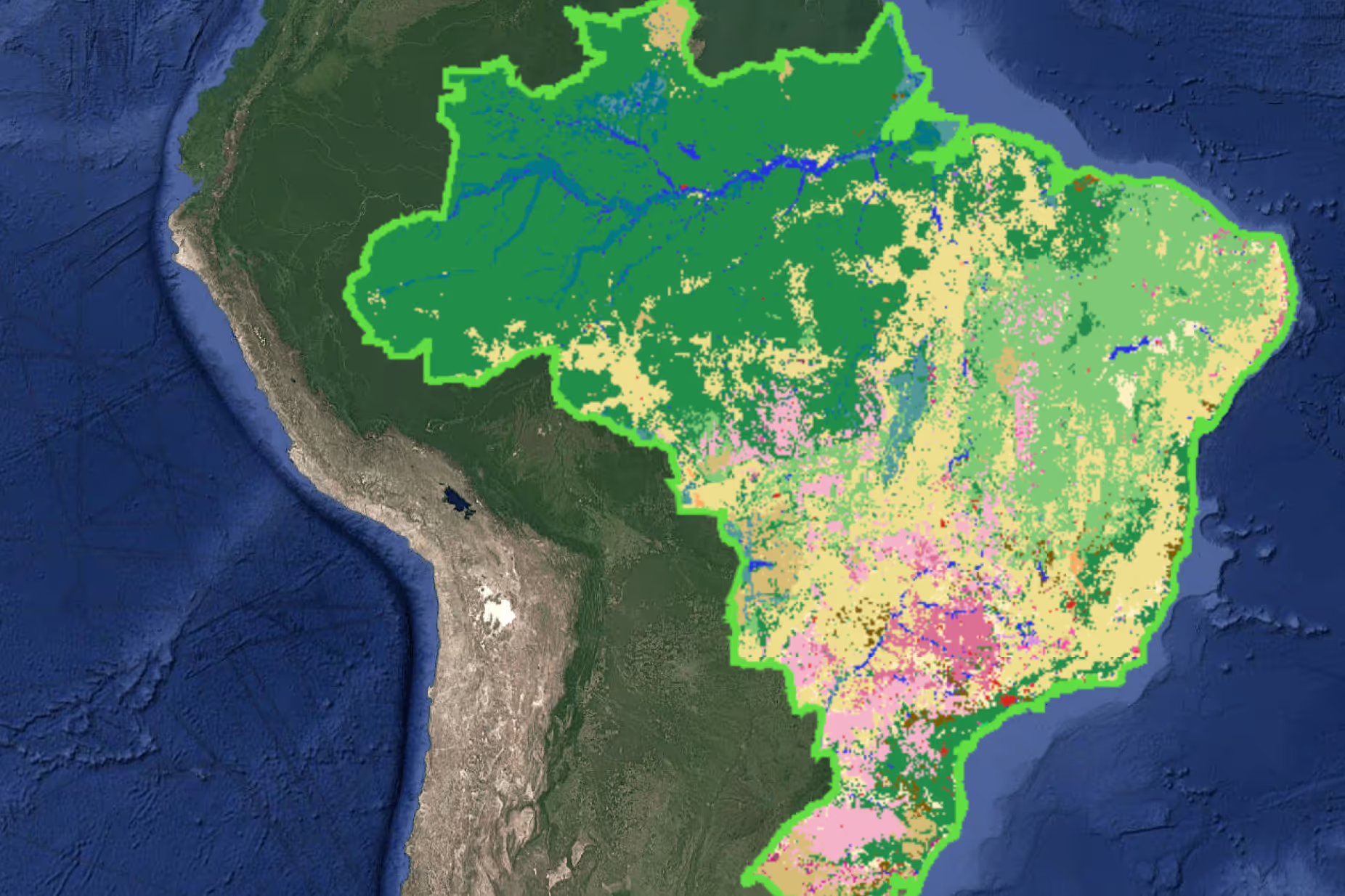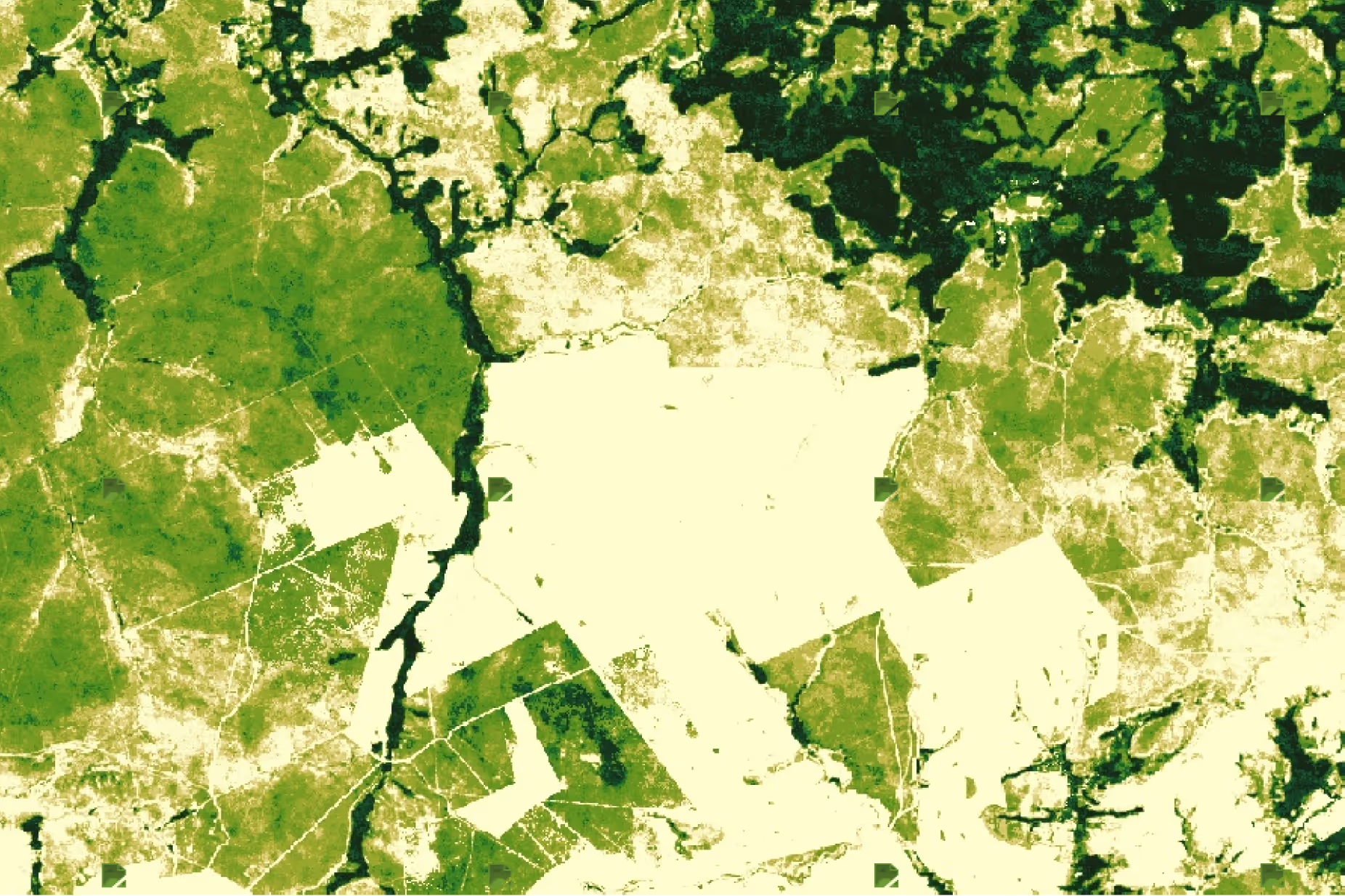James Bowden, Senior Lecturer in Financial Technology at Strathclyde Business School, shares how MSc students are exploring the future of finance through hands-on experience with geospatial data on Earth Blox.
I wanted to give my MSc FinTech students a unique hands-on experience with satellite Earth observation (EO) data. My challenge was how to do this meaningfully in a short postgraduate module, especially given the students’ varied backgrounds and limited exposure to geospatial data or coding. Thankfully, Earth Blox provided us with just the platform we needed.
In my “Fintech Innovations, Applications and Considerations” module, part of the MSc Financial Technology programme at Strathclyde Business School, I introduce students to a range of cutting-edge tools, including Generative AI and advanced Natural Language Processing (NLP), and give them the opportunity to evaluate their potential applications in finance. The goal isn't for students to become technical experts in each topic. Rather, the aim is to broaden their perspectives, encouraging them to think critically about the future of financial markets in light of innovations happening in other fields.
I’ve also been involved in several research projects exploring how EO data can help address existing challenges in financial theory and practice. We’ve mapped EO data types to Environmental, Social and Governance indicators (ESG), examined ways to improve integrity and trust in the voluntary carbon markets, and studied the relationship between oil and gas asset ownership and pollution intensity in the North Sea.
It made sense to add this technology to my students’ portfolio of cutting-edge tools, and to do this, we used Earth Blox. The platform’s no-code interface and support materials enabled students to engage with the data independently and at pace. Past interactive demonstrations have included analysing vegetation indices around Glasgow and tracking infrastructure development in Dubai using nighttime light data.
Earth Blox offers our students a two-week trial to work with EO data on their platform, allowing them to explore global geospatial datasets for themselves in just a few clicks. For many students, it’s their first experience working with EO data. According to their reflective assessments at the end of the module, it leaves a lasting impression. I think that’s because they quickly realise this type of data is far more accessible than expected, and it opens up new ways of thinking about how EO could complement or enhance financial analysis.
Applying EO data to climate finance challenges with Earth Blox
A small group from this year’s cohort took things further by submitting an EO-based proposal to the Climate Investment Challenge, where they’ve reached the semi-finals. We’re currently waiting to hear whether they’ve progressed to the final. One of the team members, Thomas Bouttell, shared his experience:
“The trial of Earth Blox that MSc FinTech students at the University of Strathclyde had access to could not have been better timed: my team and I had been fleshing out an idea for the Climate Investment Challenge, which included the use of geospatial data. We jumped at the opportunity to trial our model with real-life data of which Earth Blox was the perfect source.
The platform itself is very intuitive, enabling us to quickly select the data we wanted to use, such as yearly changes in sea temperature. The experience of getting to use the software was great support for our learning, alongside a guest lecture from Dr Steven Owens (Senior AI Lead in Earth Intelligent Finance at the University of Strathclyde).
We are looking for data partners in our journey towards the finals of the Climate Investment Challenge 2025 and would not hesitate to work with Earth Blox again. The data itself is uniquely placed and will only become more relevant as the climate crisis develops. I think that Earth Blox has a solid vision for itself and undoubtedly a place in the developing climate data market.”
Thomas’ experience captures exactly what we hope to offer through the MSc FinTech programme: students making interdisciplinary connections, engaging with real-world data, and applying it creatively to complex, high-impact challenges.
James Bowden is a Senior Lecturer in Financial Technology at Strathclyde Business School, where his research focuses on applying unstructured data to solve real-world challenges in finance. With a background in industry and a strong publication record across leading journals and platforms such as the World Economic Forum and The Conversation, he brings both academic rigour and practical insight to the classroom.
.avif)


